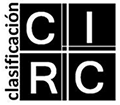Un cambio de paradigma para que los líderes hagan frente a la pandemia
DOI:
https://doi.org/10.18002/rjule.i10.7437Palabras clave:
Liderazgo, COVID-19, Entorno de trabajo híbrido, Cambio de paradigma, EQResumen
El brote de COVID en 2020 ha dado la vuelta a nuestro enfoque del trabajo, ya que permitió a millones de empleados experimentar los beneficios de trabajar desde la seguridad de sus hogares. Dos años más tarde, los modelos de trabajo híbrido se han proliferado y varias empresas tienden a combinar el trabajo presencial con el remoto y buscan aprovechar ambos. Está a punto de producirse un cambio de paradigma por el que las decisiones individuales se orientarán a anteponer las necesidades del ser humano a las del crecimiento empresarial. Inspirados por la necesidad de los gerentes y líderes de comprender las repercusiones sin precedentes de esta “nueva normalidad”, en este artículo nosotros (a) discutimos las repercusiones de la pandemia en el entorno laboral, (b) identificamos los motivos para tener equipos híbridos y (c) enumeramos las conclusiones de nuestra revisión de la literatura como herramientas que los líderes pueden usar para mantener el nivel de productividad requerido en sus equipos. Hemos comprobado que los gerentes podrían considerar cambiar su enfoque de la presencia de los empleados in situ a los resultados y de reinventar el lugar de trabajo junto con sus colegas para integrar las preferencias privadas. Los líderes parecen ser más eficaces en un entorno de trabajo híbrido si se mejoran sus habilidades de gestión de personas y operan en un nivel de inteligencia emocional más alto que antes.
Descargas
Citas
AROLES, J., CECEZ-KECMANOVIC, D., DALE K., KINGMA S.F., & MITEV, N. (2021): New ways of working (NWW): Workplace transformation in the digital age, In Information and Organization, 31. 4. DOI: 10.1016/j.infoandorg.2021.100378
BÉLAND, L.-P., BRODEUR, A., & WRIGHT, T. (2020): The short-term economic consequences of covid-19: Exposure to disease, remote work and government response. In SSRN Electronic Journal. DOI: 10.2139/ssrn.3584922
BENO, M. (2021): On-site and hybrid workplace culture of positivity and effectiveness: Case study from Austria. In Academic Journal of Interdisciplinary Studies, 10(5), 331-338. DOI: 10.36941/ajis-2021-0142
CHAMAKIOTIS, P., PANTELI, N., & DAVISON, R.M. (2021): Reimagining e-leadership for reconfigured virtual teams due to covid-19. In International Journal of Information Management, 60, 102381. DOI: 10.1016/j.ijinfomgt.2021.102381
CLARKE, T., & CLEGG, S. (2000): Changing Paradigms: The Transformation of Management Knowledge for the 21st Century. HarperCollins. COLLINS, J. (2001): Good to Great. HarperCollins.
DINH, J.V., REYES, D.L., KAYGA, L., & LINDGREN, C. (2021): Developing team trust: Leader insights for virtual settings, In Organizational Dynamics, 50, pp. 1-11., DOI: 10.1016/j.orgdyn.2021.100846
DRUCKER. P.F. (2001): Management Challenges for the 21st Century. HarperBusiness.
FRICK, D.E. (2010): Motivating the Knowledge Worker. ttps://www.dau.edu/library/arj/ARJ/arj60/Frick_ARJ60.pdf (February 10, 2022).
HOWE, D.C., CHAUHAN, R.S., SODERBERG, A.T., & BUCKLEY, M.R. (2021): Paradigm shifts caused by the COVID-19 pandemic. In Organizational Dynamics, 50(4), 100804. https://doi.org/10.1016/j.orgdyn.2020.100804
HUME, D. (1999): An Enquiry Concerning Human Understanding. Oxford University Press.
KNIFFIN, K.M., NARAYANAN, J., ANSEEL, F., ANTONAKIS, J., ASHFORD, S.P., BAKKER, A.B., BAMBERGER, P., BAPUJI, H., BHAVE, D.P., CHOI, V.K., CREARY, S.J., DEMEROUTI, E., & VUGT, M. van. (2021): Covid-19 and the workplace: Implications, issues, and insights for future research and action. In American Psychologist, 76(1), 63–77. DOI: 10.1037/amp0000716
KUHN, T. (2021): The Structure of Scientific Revolutions. In M. RUSE (Ed.), Philosophy after Darwin: Classic and Contemporary Readings (pp. 176-177). Princeton: Princeton University Press. https://doi.org/10.1515/9781400831296-024
KULSHRESHTHA, K., & SHARMA, G. (2021): Understanding e-leadership: Please mind the gap. In Technological Forecasting and Social Change, 168, 120750. DOI: 10.1016/j.techfore.2021.120750
LEE, W.T., HOM, P., EBERLEY, M., & LI, J. (2018): Managing employee retention and turnover with 21st century ideas, In Organizational Dynamics, Vol. 47, pp. 88-98. DOI: 10.1016/j.orgdyn.2017.08.004
MENDELS, D. (2007): On memory. An interdisciplinary approach. Peter Lang.
MITCHELL, A., & BREWER, P.E. (2021): Leading hybrid teams: Strategies for realizing the best of both worlds. In Organizational Dynamics, 100866. DOI: 10.1016/j.orgdyn.2021.100866
NEWMAN S.A., & FORD R.C. (2021): Five Steps to Leading Your Team in the Virtual COVID-19 Workplace, In Organizational Dynamics, 50. 1-11. DOI: 10.1016/j.orgdyn.2020.100802
SONG, J. (2004): Yet another paradigm shift? From Minds-on to Hearts-on. In Teaching and Learning of Physics in Cultural Contexts. https://doi.org/10.1142/9789812702890_0004
SNELLMAN C.L. (2014): Virtual Teams: Opportunities and Challenges for e-Leaders, Procedia – In Social and Behavioral Sciences, 110, pp1251-1261 DOI: 10.1016/j.sbspro.2013.12.972
Descargas
Publicado
Cómo citar
Número
Sección
Licencia
Derechos de autor 2022 Brigitta Bánhidi

Esta obra está bajo una licencia internacional Creative Commons Atribución-NoComercial-CompartirIgual 4.0.
Los autores que publican en esta revista están de acuerdo con los siguientes términos:- Los autores ceden de forma no exclusiva los derechos de explotación (reproducción, distribución, comunicación pública, transformación) a la Universidad de León, por lo que pueden establecer, por separado, acuerdos adicionales para la distribución no exclusiva de la versión de la obra publicada en la revista (por ejemplo, alojarlo en un repositorio institucional o publicarlo en un libro), con un reconocimiento de su publicación inicial en esta revista.
- Este trabajo se encuentra bajo la Creative Commons Attribution-NonCommercial-ShareAlike 4.0 International License. Puede consultarse desde aquí la versión informativa y el texto legal de la licencia.
- Se permite y se anima a los autores a difundir electrónicamente las versiones pre-print (versión antes de ser evaluada) y/o post-print (versión evaluada y aceptada para su publicación) de sus obras antes de su publicación, ya que favorece su circulación y difusión más temprana y con ello un posible aumento en su citación y alcance entre la comunidad académica.








